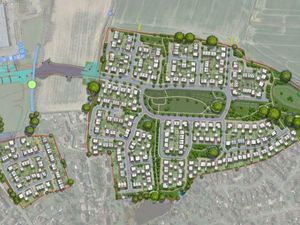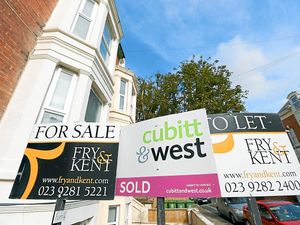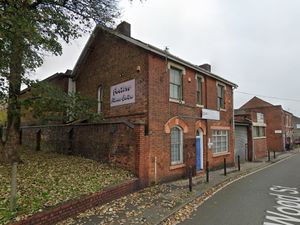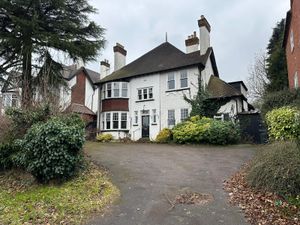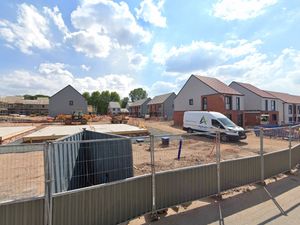Controversial Birmingham Bullring Indoor Market plans have been recommended again - despite ‘risk’ to traders
Divisive plans to demolish Birmingham’s Bull Ring Indoor Market building to make way for housing have been recommended for approval for a second time.
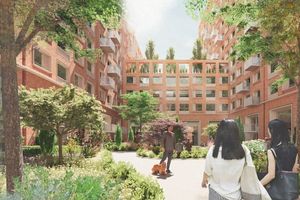
A decision on the proposals was recently pushed back amid concern over the future of the market traders at Birmingham Bull Ring Indoor market, who were warned last year that the site in Edgbaston Street could be redeveloped.
The prospect of the historic market building being bulldozed, after being part of city centre life for many years, triggered shockwaves and left traders anxious about their future.
According to a planning application submitted by Hammerson, the proposed development could provide up to 745 apartments or up to 1,544 student bedrooms – or any combination of these uses.
Commercial space, car and cycle parking, new public realm works, a private central courtyard and roof-top terraces would also be provided.
But at a planning committee meeting in January, a number of councillors said they were worried about what could happen to the traders despite plans to construct a temporary market to accommodate them.
A council officer’s report, published ahead of the meeting, explained it was the intention for the indoor market traders to be “decanted” to this temporary home on the former wholesale market site.
“The proposed new temporary market should be fully operational by the end of 2026 at the latest,” it said. “It is important to note that the majority of traders within the existing indoor market have leases that run until September 2027.”
It went on to say that this should ensure there is plenty of time for a “smooth transition” to the new temporary market.
When it comes to a more long-term solution, the report said the recently-approved Smithfield scheme, an enormous project which is set to transform the former Birmingham wholesale market site, could play a pivotal role.
“It is hoped that traders will move into the new permanent market building, which will be provided on the wider Smithfield site,” it said.
“It is therefore clear that the proposed development would not have any adverse impact on the provision of market facilities.”
'I can't give you a cast iron guarantee'
However Nick Jackson, area planning manager, acknowledged during the meeting that the delivery of the temporary and replacement permanent markets is “contingent on securing funding”.
“I can’t give you a cast-iron guarantee of exactly when the temporary market, if there is going to be temporary, and the permanent will be built,” he later said. “But the timescales with the leases and discussions we’ve had with the Smithfield developer all indicate that it is possible and likely.”
Nevertheless, councillors ultimately agreed to defer a decision on the proposals during last month’s meeting.
But an update, issued ahead of this week’s planning meeting, said there had been “notable progress” on the Smithfield plans and added this provides a “greater level of certainty over future market provision”.
It went on to say that the council will be submitting an application to the Enterprise Zone for funding to secure the delivery of both the temporary and replacement permanent markets.
“Until such funding is secured, there remains a risk to the delivery plans,” the update acknowledged however.
The use of a condition that prevents the demolition of the indoor market until a new market is ready, in order to remove this risk, was considered “entirely unreasonable”.

“Whether the temporary and/or permanent market comes to fruition is completely outside the control of the applicant,” it explained. “For example, the success or otherwise of the funding bid would not be down to applicants.”
It added: “There is not considered to be any reasonable mechanism which could 100 per cent guarantee that any new indoor market would be completed and operational prior to the demolition of the application site.”
New housing 'benefits'
Those behind the proposals also reiterated the benefits of the scheme, including new housing, the potential of creating a ‘gateway’ development, public realm enhancements and use of brownfield land in a ‘highly sustainable’ location.
Hammerson, who own the site and lodged the plans, said last year that it would be working closely with the city council with regards to the timelines for both this project and the Smithfield development.
Harry Badham, chief development and asset repositioning officer, also told the Local Democracy Reporting Service that there would be efforts to update the market traders during the consultation process.
Asked about the concerns over the loss of the historic market, Mr Badham said. “We understand the purpose of Birmingham as a retail centre – markets are clearly an absolute integral part of that.
“The city’s plan on how to consolidate the markets has been a key part of planning Smithfield.”
In the update, council officers said they were satisfied that the proposals are in accordance with the Birmingham Development Plan.
They have therefore been recommended for approval again and will be considered at a planning committee meeting on Thursday, February 13.

